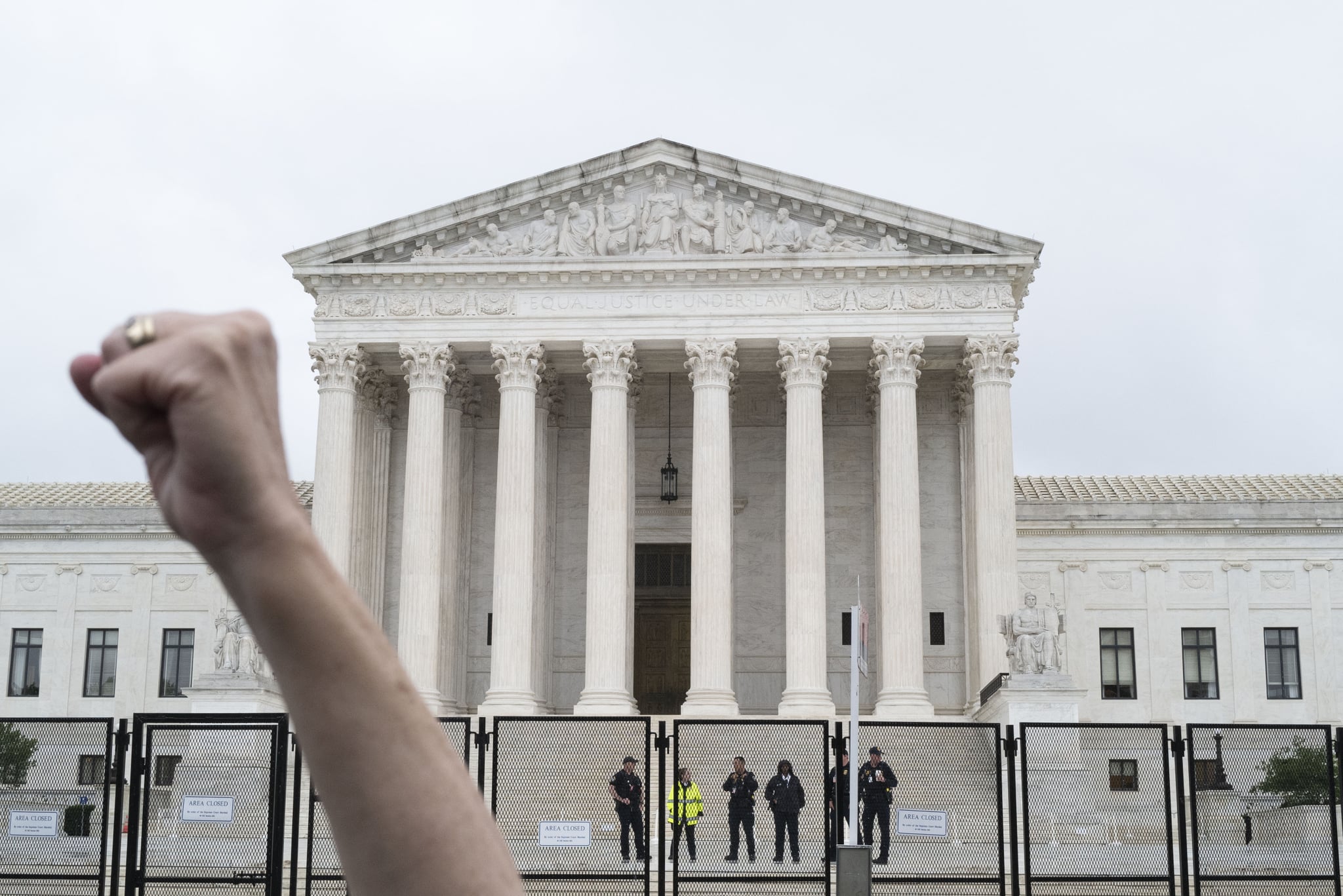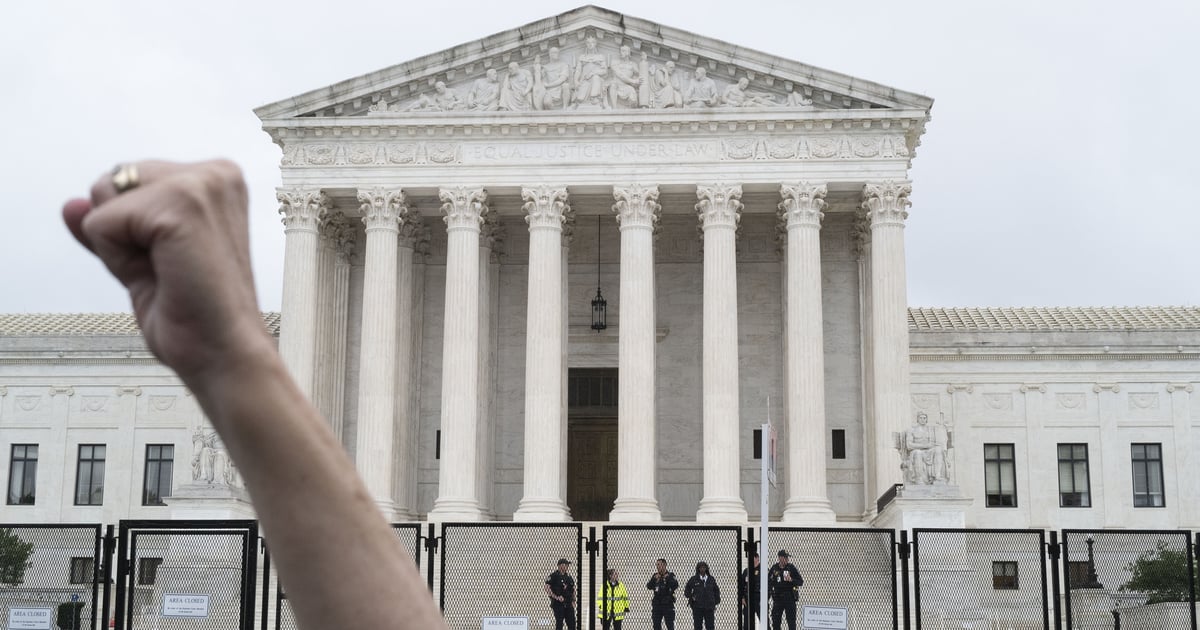Products You May Like

The Supreme Court voted today to overturn Roe v. Wade, the landmark 1973 case that established a pregnant person’s right to an abortion. With a 6-3 vote, conservative justices took the majority and upended nearly 50 years of settled precedent.
The decision, however, was not met without dissent, particularly from liberal Supreme Court Justices Stephen Breyer, Sonia Sotomayor, and Elena Kagan. In arguing that abortion should remain a constitutional right, the justices called the majority’s approach “cavalier,” stating that there is “no good reason for the upheaval in law and society it sets off.”
The trio also noted that “the Court reverses course today for one reason and one reason only: because the composition of this Court has changed.” They emphasized the disregard of precedent, writing, “Roe and Casey have been the law of the land for decades, shaping women’s expectations of their choices when an unplanned pregnancy occurs. Women have relied on the availability of abortion both in structuring their relationships and in planning their lives.”
Breyer, Sotomayor, and Kagan also pointed to the harsh and brutal implications of the decision on pregnant people. “Some States have enacted laws extending to all forms of abortion procedure, including taking medication in one’s own home. They have passed laws without any exceptions for when the woman is the victim of rape or incest. Under those laws, a woman will have to bear her rapist’s child or a young girl her father’s — no matter if doing so will destroy her life,” they wrote.
“”Across a vast array of circumstances, a State will be able to impose its moral choice on a woman and coerce her to give birth to a child.”
The trio wrote that the decision gives states the freedom to compel women to carry to term fetuses with severe and fatal physical anomalies and opens the door for states to mandate that pregnancies be carried out despite risk of death or physical harm to the pregnant person: “Across a vast array of circumstances, a State will be able to impose its moral choice on a woman and coerce her to give birth to a child.”
The justices also called out the decision’s “geographically expansive effects” and financial impact on pregnant people. “Today’s decision, the majority says, permits ‘each State’ to address abortion as it pleases,” the justices wrote. “That is cold comfort, of course, for the poor woman who cannot get the money to fly to a distant State for a procedure. Above all others, women lacking financial resources will suffer from today’s decision. In any event, interstate restrictions will also soon be in the offing. After this decision, some States may block women from traveling out of State to obtain abortions, or even from receiving abortion medications from out of State.”
The three justices also repudiated the possible effort some states will make to criminalize the supply of information or funding that helps women gain access to other states’ abortion services. “Most threatening of all, no language in today’s decision stops the Federal Government from prohibiting abortions nationwide, once again from the moment of conception and without exceptions for rape or incest,” the dissenting opinion notes. “If that happens, ‘the views of [an individual State’s] citizens’ will not matter. The challenge for a woman will be to finance a trip not to ‘New York [or] California’ but to Toronto.”
The justices warned that this decision could pave the way for states to impose bans on other reproductive resources, including contraception and the morning-after pill. And while the majority argues the contrary, other rights, such as same-sex relations and same-sex marriage, could also come up for reconsideration. In fact, Justice Clarence Thomas stated in his opinion that the Court should reconsider these cases.
“Not until Roe, the majority argues, did people think abortion fell within the Constitution’s guarantee of liberty,” the liberal justices said. “The same could be said, though, of most of the rights the majority claims it is not tampering with. The majority could write just as long an opinion showing, for example, that until the mid-20th century, ‘there was no support in American law for a constitutional right to obtain [contraceptives].’ . . . So one of two things must be true. Either the majority does not really believe in its own reasoning. Or if it does, all rights that have no history stretching back to the mid-19th century are insecure. Either the mass of the majority’s opinion is hypocrisy, or additional constitutional rights are under threat. It is one or the other.”
The justices ended their dissent with a last line: “With sorrow — for this Court, but more, for the many millions of American women who have today lost a fundamental constitutional protection — we dissent.”
Click here to read the liberal justices’ dissenting opinion in its entirety.
